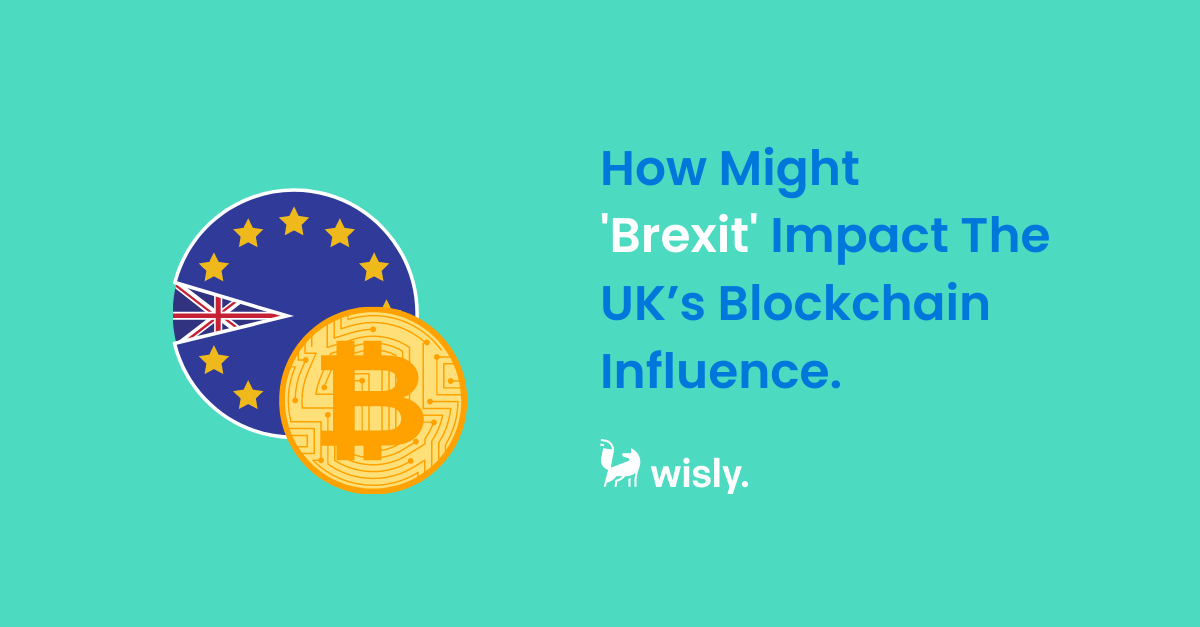Imagine a world where your money is no cause for worry. Intermediaries don’t exist in financial transactions, fraud is but a remnant of the past, and the time between sending and receiving money continues to shorten.
Blockchain technology brings these life simplifying scenarios to life. No more middlemen, transaction transparency, lower costs and faster transactions – all a reality. This new technology heavily influences the UK market, and positively so. But a question remains – will Brexit affect the UK’s Blockchain influence?
Blockchain Technology Pioneers
The UK was one of the first countries to apply Blockchain technology. Brexit came as a surprise to the world and the British people themselves. Let’s take a look at some of the implications of this decision for Blockchain industries and cryptocurrencies.
Global finance depends on London much in the same way it depends on Wall Street. London’s dominance of financial services makes the United Kingdom’s capital the rival of New York City, the world’s largest financial centre.

Divide and Conquer
Brexit has created disruption and uncertainty in the financial sector, but industry insiders say they see a silver lining to this. They believe the UK’s departure from the bloc leaves it free to forge its own regulatory path in FinTech and cryptocurrency. Citing that the separation could not only spur on innovation but help the nation reinvent itself as a hub for crypto and decentralised finance.
The Cold Shoulder
Although the UK formally left the EU on December 31, 2020, U.K.-based financial services companies’ ability to do business in EU territory still hangs in the balance. The EU is yet to agree on the equivalence of financial regulation with Britain. Equivalence is the decision of one state to recognise another state’s legal requirements for regulation, even if they differ from their own.
The Financial Conduct Authority, the UK regulator, has allowed European financial services companies, including those in the payments space, to continue trading in the UK under a temporary permissions program, but this has not been reciprocated by the bloc or any of its member states.
Passporting
What is passporting? Passporting is the measure put in place to allow businesses registered in the European Economic Area (EEA) to do business with one another without the need for further authorisation. This saves a ton of money and helps to circumvent the slow bureaucratic application process for each country.
After leaving the EU, it’s uncertain if the UK will keep this passportability of their financial licenses. This is critical for start-ups in the Blockchain industries if they choose to establish their headquarters in Europe.
Endless Possibilities
Brexit has brought ambiguity into a space that technology advocates have long praised as forward-thinking and permissive.
With the tightening of borders, companies currently in the UK may be forced to outsource to other European Union countries. This means that hiring and paying in an already competitive market will become even more challenging.
An interesting possibility is that the UK could join the EEA as an independent member. Currently, EU countries are members of the EEA, alongside non-EU countries such as Iceland, Liechtenstein, and Norway. This could open the door for Britain to join too.
The UK has been a large contributor to helping the revolution of these new technologies. They created a safe zone for Blockchain companies to pass a measure that spared Bitcoin from value-added tax. These exemption measures are currently under review in the EU –Europe is now putting pressure on regulators in the US to rethink their policies on FinTech innovation.
Sway & Influence
If Brexit puts the UK’s status as a digital currency leader among European nations in jeopardy, other cities are ready to pounce on the role. Financially powerful cities like Luxembourg, Berlin, Stockholm, and Zug are already forming digital currency exchange points in Europe.
To help minimise the adverse effects of its divorce from the EU, the UK needs to engage in friendly negotiations with its neighbours in the bloc. It may be the most effective way of maintaining its leading position in the Blockchain area community. Influences on Blockchain regulation may decrease or remain the same, all depending on further Brexit negotiations.
UK companies using Blockchain may be subject to specific European financial regulations. They could also lose passporting privileges and forgo any influence over EU policymaking. This is all speculative for now, but these are the realistic outcomes we can foresee.
Currently, there is no impact on any existing passported entity doing business in the UK and benefiting from the advantages of laws that require EU member-states to honour some of each other’s laws. However, this position may change in the future, according to the conditions of the negotiation. The impact of Brexit depends on the relationship the UK has with the European Union in the future. A saving grace is Britain’s close relationship with its biggest trading partner, the US, which could settle it from any major disasters.
The Central Bank of England has already started to explore the potential applications of Blockchain technology. This is a positive move to remain an epicentre for start-ups from all over Europe. It could also preserve the UK’s influence as a world leader in this field.
Given Blockchain’s immense potential to solve real-world problems, we can still see the UK continuing to be at the fore of this technology. Dysfunctional processes are all around us – slowing down commerce and discouraging trade between nations. International trade is also rife with fraud, counterfeiting, underhanded politics and error. Brexit may create extra hurdles for the UK in the future, but these obstacles could be ones that they eventually overcome as the world enters a new course of operation.
Any data, text or other content on this page is provided as general market information and not as investment advice. Past performance is not necessarily an indicator of future results.




